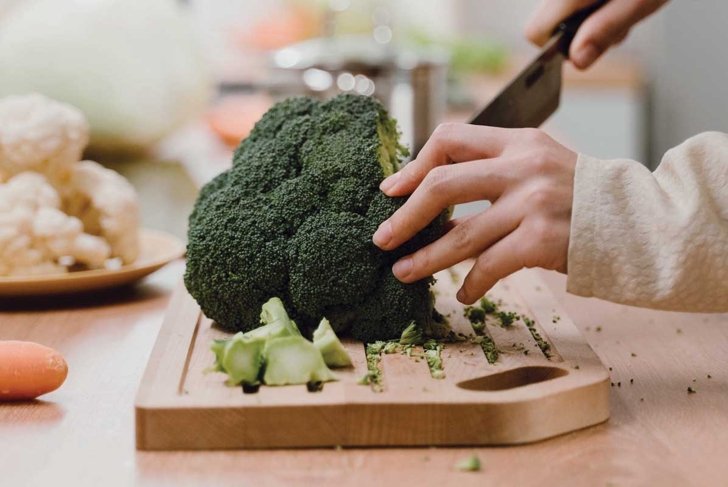
Most of us have felt stressed, deprived, confused, or out of control when it comes to eating. It’s time to free yourself, to ditch deprivation and embrace eating in abundance. It’s as simple as focusing on foods you can (and should) eat in abundance while crowding out foods that should be limited or eliminated.
The result? A sustainable healthy body composition and, most importantly, disease prevention (plus more energy, less inflammation, and a more diverse gut microbiome). An added bonus? By eating this way, you’ll be minimizing your impact on the environment and animals’ lives.
The equation for long-term health and sustaining a healthy weight
High nutrient density + high fibre + low calorie density = plants
It’s simple: Eat more plants
By focusing on whole plant foods (veggies, tubers, fruits, whole grains, and legumes), you’re consuming high-volume foods that will fill you up with nutrients and fibre, in turn triggering the message from your brain that you’re full and preventing you from overeating. In other words, you get satiation, nourishment, and satisfaction.
What does eating this way look like? Big portions of colourful food, and no more measuring. Eating should give you feelings of pleasure and contentment, rather than guilt and stress. It should be seen as an opportunity to fuel your amazing body with the nutrients it deserves.
Let’s break it down
- 75 g of cheddar cheese (3 inch cubes) = 308 calories
- 15 mL (1 Tbsp) vegetable oil = 120 calories
- 3 1/2 oz (100 g) piece of steak = 149 calories
All of the above options are low volume and calorie dense, with zero fibre.
On the other hand:
- 2 cups (500 mL) broccoli = just 110 calories—and loads of fibre
By filling up on nutrient-dense, fibre-rich, high-volume food (whole plant foods), you will naturally be eating fewer calories without feeling deprived.
Plants are king for their ratio of high nutrients and volume to low-calorie density for sustainable weight management and longevity. They’re also packed with antioxidants, vitamins, minerals, and, most importantly, fibre—which makes them queen when it comes to gut health!
These prebiotic plant fibres are the preferred food for the trillions of microbes within your gut microbiome. Eat a variety of plants and you’ll become the host to a diverse party of happy microbes.
In return, you’ll receive the greatest gift: a healthy gut to combat disease. You’ll assimilate nutrients optimally and produce anti-inflammatory short-chain fatty acids that may have an effect on brain health, serotonin levels, energy, immunity, weight management, digestion, hormonal balance, blood sugar balance, and healthy skin.
What’s the science on that?
Studies strongly support the role of plant-based diets in reducing the risk of type 2 diabetes. Reducing the high saturated fat and zero-fibre animal foods in your diet actually lowers the risk of insulin resistance and, in turn, helps prevent, or even reverse type 2 diabetes. Fixing the underlying cause will help you achieve the ability to metabolize health-promoting whole carbohydrates.
It’s time to start crowding out animal-based and processed foods, and focus on eating more whole plant foods!
So, where do you start?
Think about why you want to switch to a plant-focused diet. Maybe you want to eat more plants to minimize your environmental footprint or prevent lifestyle-related health conditions such as heart disease, obesity, or diabetes. The rest is easy.
Back to the basics
It may sound radical, but deprivation and restriction are not required to transform your health, love your body, and glide through life with confidence and energy.
- Personalize the process. Connect with your “why.”
- Focus on diversity and abundance of whole plant foods (aim for at least 80 percent or more).
- Minimize oils and refined/processed foods; aim to eliminate animal products.
- Ensure a few important nutrients are at optimal levels, including vitamins B12, D3, K2, and microalgae EPA/DHA.
- Love your body along the way; it’s truly incredible, and its ability to evolve is mind-blowing.
- Manage your stress by moving your body, laughing, and taking moments for yourself.
80/20 Plants app
- the app to help you eat more plants
- goal: at least 80 percent whole plant foods
- 1:1 coaching just a text away
- a supportive community
- daily educational mini lessons
- guide videos
- hundreds of recipes and meal planning help
- a progress slider to track your progress and meals
















